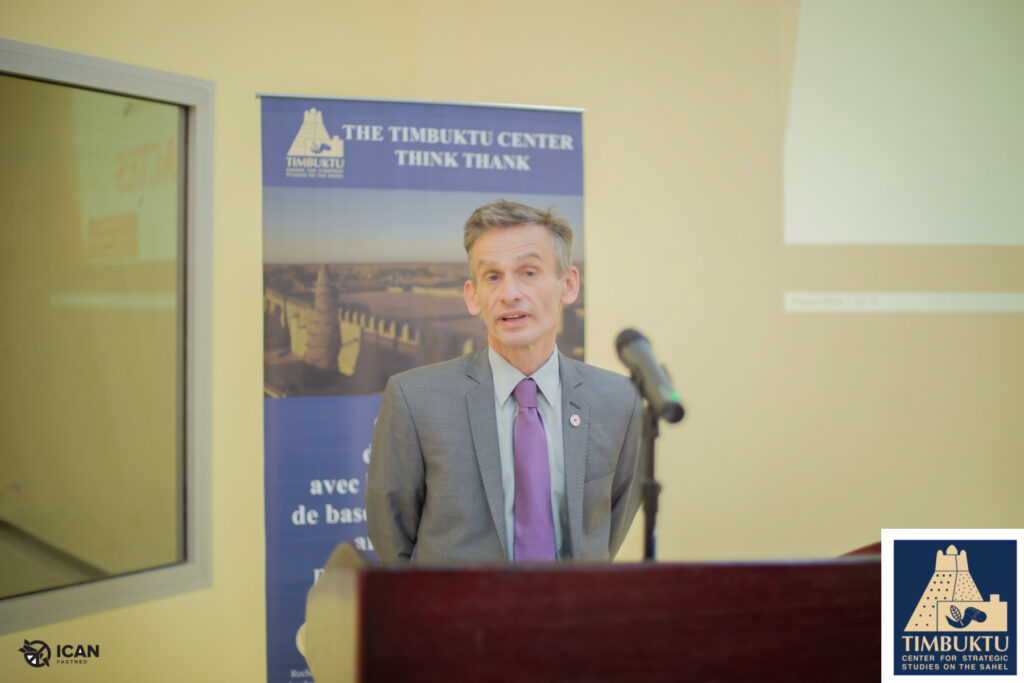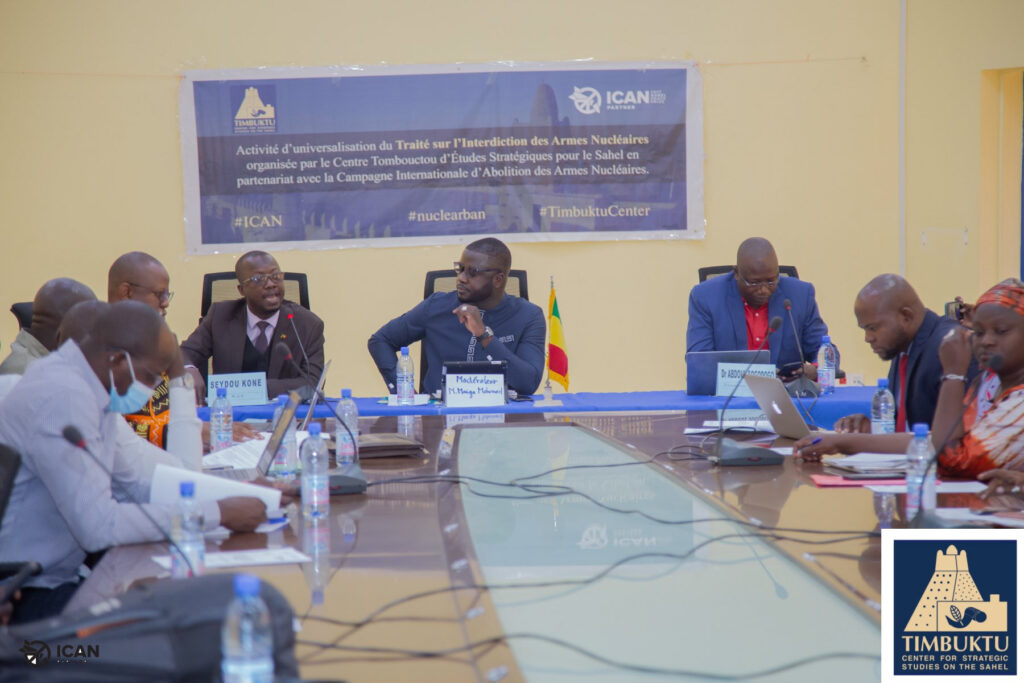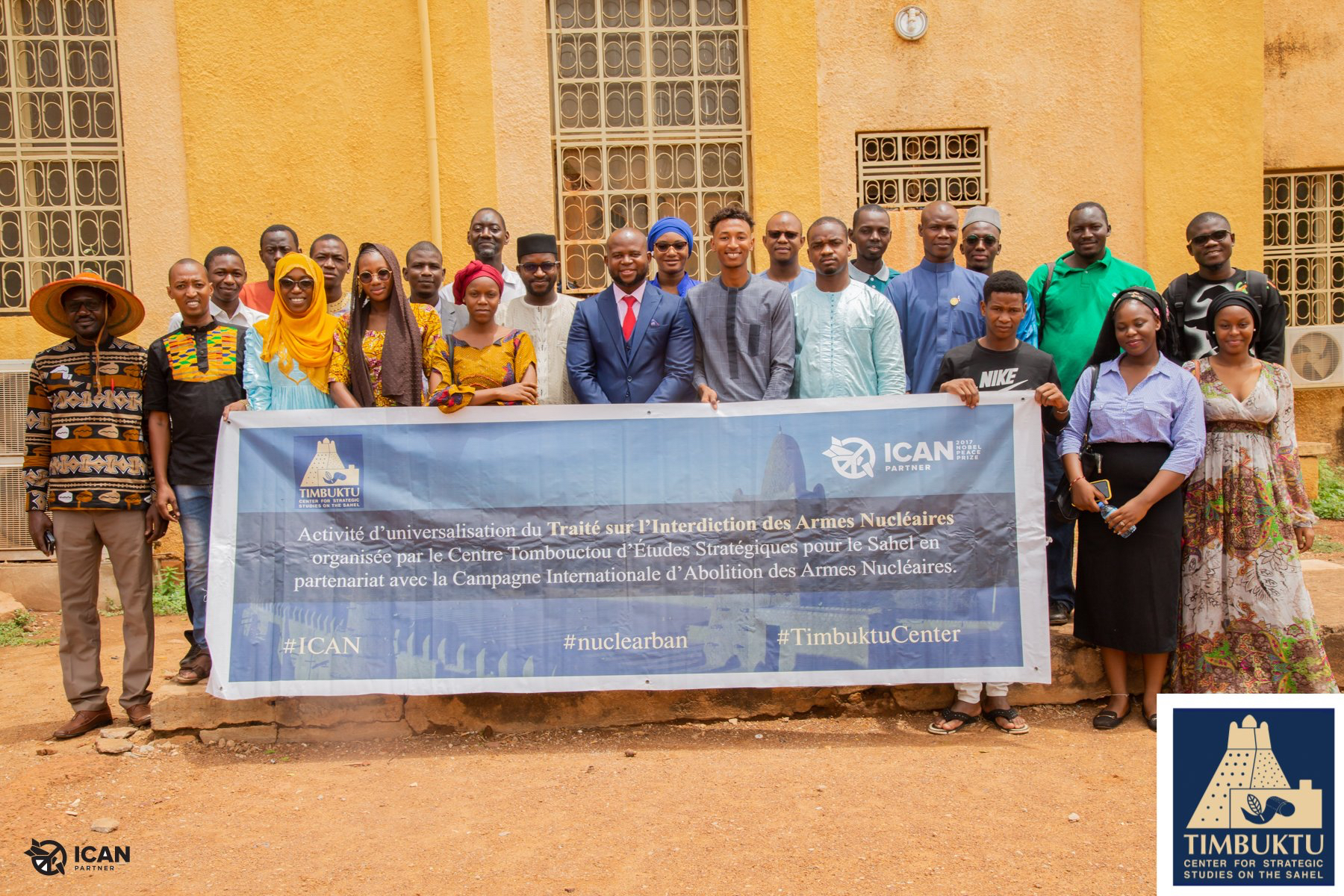The Second World War is indelibly marked by the United States’ use of atomic bombs against Japan (Hiroshima and Nagasaki), resulting in irreversible consequences for the environment and massive loss of human life. It is crucial to understand what a nuclear weapon is—an unconventional weapon utilizing the energy released by the fission of heavy atomic nuclei (uranium, plutonium in the case of A-bombs) or by a combination of this process with the fusion of light atomic nuclei (hydrogen in the case of H-bombs). The destructive impact of these weapons on living beings and the environment has sparked a global debate on states’ responsibility to prevent a nuclear holocaust. In this context, the Treaty on the Prohibition of Nuclear Weapons (TPNW) was initiated by the United Nations to outlaw the use of these weapons.
The TPNW commits states parties to never develop, test, produce, acquire, possess, store, use, or threaten to use nuclear weapons. It also prohibits states from deploying nuclear weapons on their territory and from assisting anyone in engaging in activities prohibited by the treaty. States parties are obligated to prevent and suppress any prohibited activity within their jurisdiction or control. The treaty also mandates states parties to provide sufficient assistance to individuals affected by the use or testing of nuclear weapons and to take necessary measures for the environmental restoration of contaminated areas under their jurisdiction or control due to nuclear weapon-related activities.
While the majority of states and civil society advocate for the prohibition of nuclear weapons through legal mechanisms, the struggle for power and dominance remains a dominant reality in international relations. This article explores the challenges and implications of banning nuclear weapons and examines the impact of the Treaty on the Prohibition of Nuclear Weapons on global peace and security.
A Historical Struggle for Global Nuclear Disarmament
Internationally, numerous actors recognize the growing threat of nuclear war and have engaged in the fight for the eradication of nuclear weapons to prevent a catastrophic impact on health systems, environmental consequences, and humanitarian crises. This struggle led to the signing of the TPNW in 2017.

Civil Society Action for Nuclear Weapons Prohibition
Civil society organizations have actively participated in various public interest causes, from the abolition of slavery to human rights and environmental protection. Nuclear disarmament has been a focal point for organizations like the International Physicians for the Prevention of Nuclear War (IPPNW), formed in 1980 during the Cold War. The IPPNW, comprising medical experts from the USA and Russia, employed various actions to raise awareness about the dangers of nuclear weapons.

The IPPNW, particularly concerned with nuclear disarmament, shifted its strategy over the years, advocating for the prohibition of nuclear testing and emphasizing the dangers of both civilian and military nuclear activities. The organization’s efforts culminated in the formation of the “Abolition 2000” coalition in 1995, aligning with other pacifist associations. While this coalition did not completely eradicate nuclear weapons, it contributed to a collective awareness that led to the adoption of the Treaty on the Prohibition of Nuclear Weapons by 122 states on June 7, 2017.
An Ambitious Treaty
The TPNW unequivocally prohibits nuclear weapons. Despite perceived shortcomings, such as lack of universality and the need for verification of irreversible abandonment of existing programs, the treaty provides a robust legal basis for the prohibition of nuclear weapons. The TPNW serves as a powerful tool of influence for proponents of nuclear disarmament, establishing a legal norm expressly prohibiting nuclear weapons.
Moreover, widespread adherence to the TPNW by states could delegitimize the use, production, and sale of nuclear weapons in the long run. Majority support within the United Nations could facilitate the adoption of additional binding legal texts complementing the TPNW.
The Power Play
Nuclear weapons remain a power issue in international relations, conferring significant influence on states possessing them. States with nuclear weapons almost enjoy impunity on the international stage, as international military intervention against them is deemed unreasonable due to potential collateral damage.
Degradation of Geostrategic Balances
The acquisition of nuclear weapons by the United States and the Soviet Union in 1945 and 1949, respectively, placed the world under the constant threat of destructive conflict. This strategic weapon allowed each country to annihilate its adversary. Despite the reduction in the nuclear threat during the Cold War, the possibility of accidental use or terrorist acquisition of nuclear weapons persists.
Countries like North Korea and Israel developed nuclear weapons for self-defense, altering geostrategic balances and acting as a deterrent against annexation. As new states develop or possess nuclear weapons, the debate on the legality and morality of deterrence is rekindled.
Residual Nuclear Threat
Under pressure from civil society, the United Nations sought the International Court of Justice’s opinion on the legality of nuclear weapons. While the Court ruled the threat and use of nuclear weapons legal in extreme self-defense circumstances, debates on the ethics of nuclear deterrence persist.
Civil society movements and left-leaning political parties contest the ethics attributed to nuclear deterrence by states. While states argue that nuclear weapons target military and economic installations rather than populations, civil society contends that the existence of nuclear weapons poses a risk of accidental use, causing irreversible damage to nature and humanity.
The debates between nuclear-armed states and civil society continue, especially as environmental protection takes center stage in the international agenda. The emergence of a collective rejection of nuclear weapons in the global consciousness offers hope for a nuclear-free world.
Conclusion
The Treaty on the Prohibition of Nuclear Weapons renders nuclear weapons illegal without exception, prohibiting their use, threat of use, development, testing, production, acquisition, possession, and storage. The treaty also bans any assistance, encouragement, or incitement to engage in prohibited activities. While the TPNW applies only to states that have ratified it, continued efforts are needed to encourage all states to join the treaty and rid the world of nuclear weapons. Engaged actors must persist in raising awareness about the humanitarian disaster of nuclear war and work towards dismantling the notion that nuclear weapons are a useful deterrent for international peace.
Dr. Abdoul SOGODOGO, Teaching Researcher, Vice-Dean of the Faculty of Administrative and Political Sciences at the University of Legal and Political Sciences of Bamako, and El Hadj Djitteye, Founder and Executive Director of the Timbuktu Center for Strategic Studies on the Sahel.

